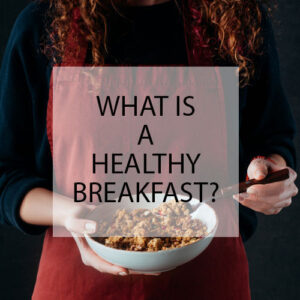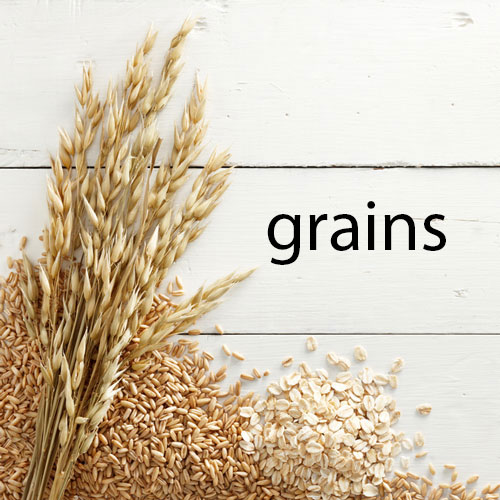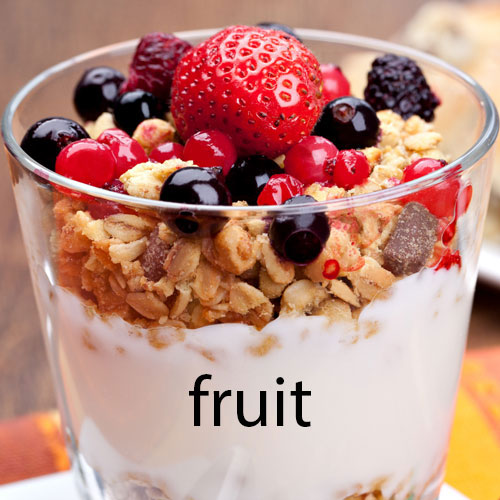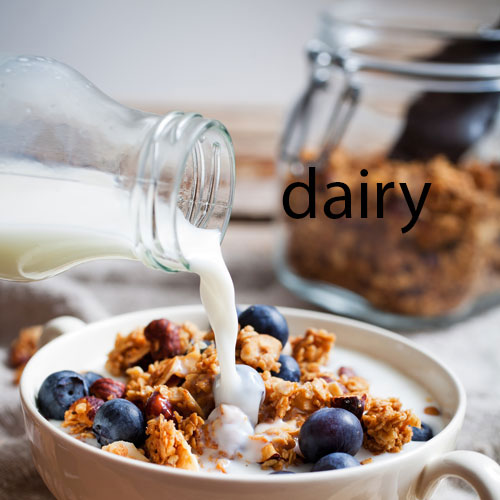What do nutritionists agree are the best components of a healthy breakfast?

The breakfast brigade falls into two camps. One called carbs and one called protein. Every morning they battle it out, one side crying out that carbs are evil whilst the other rallies against fat, meat and cholesterol. Its an age old argument and serves no purpose other than to highlight the fact that what we eat is a hugely personal thing. And therefore divisive.
As with most things, there are the extremes and there is balance. Two sides to every story.
We set out to investigate the battles behind breakfast, and here’s what we found to be the best components of a healthy breakfast.
The components of a healthy breakfast
For a start, not everything is black and white. The days of Atkins and a pound of bacon for breakfast are behind us. Even the Paleo crowd understand that the salt content of bacon and sausages makes them an “every other Sunday” special. Yet not all protein comes from animal sources, or with a hearty dose of salt and saturated fat, just as not all carbs will send you into a diabetic coma.
We researched dozens of articles and found that nutritionists, on the whole, agree on two things. The first is that refined carbs and sugar, excessive saturated fat, and salt have no place on the healthy breakfast menu. The second is that wholegrains, fruit and veg, proteins and healthy fats most definitely do.
The basic message is to include something from each of the five food groups.
What are the five food groups?
- Starchy foods – provide essential energy
- Fruit and veg – for vitamins, minerals and other phytochemicals
- Dairy – a good source of calcium
- Protein – essential for growth and repair
- Fat – provides essential fatty acids
Yet within these groups some foods are better for our health and more nutrient dense than others. Refined carbs such as white bread and sugar will cause blood sugar and insulin levels to rise. With excess energy that is stored as fat. Too much saturated fat in the diet may lead to heart attacks and stroke, whilst excess salt can lead to water retention and cause a rise in blood pressure. Even vegans love bacon, which is why fake bacon exists, but you don’t want it as your daily driver.
So that basic message can be narrowed down a little further. Stick to foods as close to their natural state as possible.
So, what does a balanced breakfast look like?
According to most of the experts, a balanced healthy breakfast is composed of…
- A serving of wholegrains
- A portion, or two, of fruit.
- A serving of dairy, or other high calcium equivalent.
Additional fats and proteins can be added depending on your needs.
It varies, but on average that is 30g wholegrains, 150g fruit, and 100g yoghurt or 250ml milk. It turns out that cereal and milk for breakfast is a good thing.
Wholegrains

Wholegrains are less refined than say white wheat flour or instant oats. With their natural structure more intact, they provide plenty of fibre and offer greater nutritional value. The fibre helps to slow down the release of sugars into the bloodstream and encourages digestive transit. Some wholegrains, such as oats, contain soluble fibre that further lessens the impact on blood sugar.
Wholegrains include wholewheat, spelt, oats, barley, rye, buckwheat, bulghur and brown rice. Collectively known as cereals, the group also contains some pseudo grains such as millet and quinoa.
Fruit

One of the major components of a healthy breakfast, fruit contains fibre as well as lots of healthy vitamins, minerals, and a range of hugely beneficial phytochemicals. Yes fruit contains sugars, but packaged as they are in their natural unprocessed form the benefits outweigh the downsides. Fibre in fruit helps to slow down the uptake of sugars, as does the other components of a healthy breakfast.
Blueberries and raspberries, in fact all berries, are superfoods in their own right that work particularly well for breakfast. Bananas provide quick and slow release energy alongside essential vitamins and minerals. Grated apple, one of the ingredients of a classic Bircher muesli, is also good for breakfast.
Dairy

With the rise of veganism, dairy is a bone of contention right now. There are alternatives available, with varying nutritional profiles, and we will discuss them at length in a further post. Suffice to say that dairy foods are still considered the number one dietary source of calcium, and non-plant protein. Especially when it comes to breakfast.
Milk and yoghurt go hand in hand with healthy breakfast cereals, providing not only calcium but vitamin A, D, and B vitamins as well as calcium, potassium and phosphorus. A source of essentially fatty acids, and protein, dairy foods do deliver for breakfast.
Adding protein
Protein is considered ideal for breakfast. Essential for growth and repair, it also keeps us feeling fuller for longer so less likely to snack in between meals. Eggs are an ideal source of protein for breakfast, and are great for switching it up when we have more time to prepare and linger over breakfast. A cooked breakfast of eggs means we can enjoy vegetables as a change from fruit, and have spinach, mushrooms, or tomatoes without them feeling out of place.
You can of course eat anything you like at any time of day. The goalposts of breakfast have certainly moved. But one thing about breakfast is that for many of us it needs to be really quick and super easy. Which is why the cereal/fruit/dairy combo fits so well.
There are other ways to add protein to your breakfast. Some yoghurt has higher protein content than others. Nuts are also excellent sources of protein. Protein powders, both dairy and plant, are also popular.
Including healthy fats
Many of the ingredients in a good granola contain healthy fats, as do chia seeds and flax seeds. Adding nuts also increases intake of essential fatty acids as well as protein; why not try a spoonful of homemade nut butter with your breakfast?
Healthy breakfast cereal

When it comes to eating wholegrains for breakfast, for most of us that means breakfast cereal. We have already talked about refined carbs and sugars for breakfast, but watch out as some wholegrain cereals still come with a load of sugar. A healthy breakfast cereal has plenty of fibre and is low in added sugar. Look for high quality versions of granola and muesli, and try overnight oats or hot porridge. Variety really is key so try not to have the same thing everyday. Sometimes though, a routine is the only way that many of us get the nutrients we need. So if eating the same bowl of porridge with berries or granola with banana makes the difference between breakfast or no breakfast then totally have at it.
Is granola healthy?
A healthy granola such as our Roasted Almond Crunch, is a great breakfast for many reasons. Not least that it is quick and easy to prepare and to eat. The best granola does not have too much sugar, is usually oat based, and comes with plenty of other nutrient dense goodies. Watch out for those that have too much sugar, too much fat, and not enough of the good bits like nuts and extra fruit. You can also consider granola bars and bliss balls. Just aim to get a portion or two of fruit too okay? As demand increases, gluten-free granola is more widely available.
Is muesli healthy?
Muesli is essentially granola without the fat that is used to make it crunchy. Some healthy muesli may have less sugar than granola, or contain no sugar at all. But do read the label, some mainstream commercial muesli will contain sugar as well as milk powder. If it makes the milk sweeter and creamier then it probably does.
10 benefits of eating a healthy breakfast every day
- Breakfast restores energy levels. With more energy you are likely to move more throughout the day.
- Replenishes nutrient levels after the period of fasting whilst asleep.
- Eating breakfast makes it more likely you will reach your five a day.
- A healthy breakfast will help regulate hunger, preventing snacking through the morning.
- Breakfast is the easiest way to get more fibre into your diet.
- Increased focus. Studies show that eating a healthy breakfast enhances mental performance.
- Breakfast boosts metabolism so you burn calories more efficiently throughout the day.
- Your blood sugar levels will be more stable.
- Eating breakfast allows for better weight control.
- Increased vitality creates a positive feedback loop. Feel better. Be better.
It is not difficult to achieve the components of a healthy breakfast, in fact you are more likely to eat breakfast if it is quick and easy. Once you discover the benefits, you will have formed a healthy habit for life.
Explore our range of healthy granola, or shop online for your healthy breakfast cereal at our bulk food store.

Comments are Closed